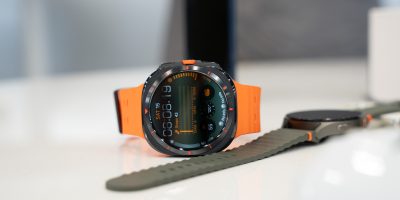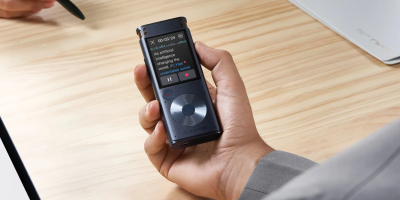
Samsung, one of the mobile industry’s biggest players in network and infrastructure, has revealed that it has started work in developing 5G data technology. While a standard for “5G” doesn’t exactly exist, we would naturally expect it to be a vast evolution from what we know to be 4G right now.
Even though 4G didn’t quite start off as 4G, the standards were tweaked to allow carriers to claim as much. Indeed, the speeds we get now far surpass what 3G afforded us, giving us double digit downstream numbers (in megabits) compared to the single digits 3G (HSPA+ not withstanding) was capable of.
We can’t even imagine what the next plateau for mobile data speeds will be, but Samsung believes it can deliver throughput speeds of up to 1 gigabit per second to a device by the end of the year 2020, with a single sub-station able to handle 10 gigabits of bandwidth. We’re not sure if said numbers would hold up after factoring in network congestion, but they’d still most certainly exceed what’s currently possible with 4G.
This would raise an interesting question of chicken vs egg: will Samsung’s (or any other telecom player’s) results shape the standard, or will Samsung eventually have to adapt to a pre-determined standard? That question remains to be answered. In fact, without any standards organization detailing 5G in any official capacity it’s probably far too early to ask.
Seven years seems like a long time to wait for this evolution, but let’s not forget that 4G LTE isn’t even fully developed yet. There are still strides to be made in today’s technology that will improve network performance many times over. T-Mobile’s particular deployment of LTE is the first example of this, with folks like Sprint, Verizon and AT&T suggesting they’ll be making key upgrades to their existing systems over time. There’s a lot to like about this news, but perhaps it’s best we reserve our excitement for what’s yet to come in the short term.
[via Samsung Tomorrow]












Here’s hoping we have better data plans by the time we get those speeds.
Wow, that’d be awesome to be able and burn through my monthly wireless data allotment in under a minute.
Are people that ignorant to think we’ll have the same data plans in 7 years? Do you know what the data plan was 7 years ago? Did you even have a phone 7 years ago? Or even 20? And i’ve been saying this even before 1080p phones, that well have 4k mobile resolution soon. It’s called progression young one.
Lets see… 7 years ago, though data plans were available, few people had them. Mostly Blackberry customers. They were unlimited, and they were about the same cost then as they are now. Virtually all of them were 2G. (Don’t confuse these plans with the “Mobile Web” plans which were $5 or $10, and only allowed proxied web access – I’m talking true data connections).
Fast forward a few years: 3G took over, bringing data plans to the masses. They were all unlimited, and they were priced similarly to the older 2G ones. These became fairly popular. The original iPhone debuted (though it wasn’t 3G).
Keep going a bit more: 4G is now in its infancy. Mobile data plans are all unlimited, still, but gaining in popularity so much that the carriers are claiming their network lacks capacity to keep this trend up. The iPhone 3G is released, Android pops its head into the world, and more people have unlimited data plans than ever before. The cost for data plans goes up.
Today: 4G is now common (if you don’t have a 4G device, you at least know somebody who does). The era of unlimited data plans is now over. AT&T and Verizon, who control 2/3rds of the mobile subscribers in America, don’t offer unlimited plans any more, and Sprint/T-Mobile institute throttling at certain levels/circumstances, though they still call their plans “unlimited”. The cost for these data plans falls slightly, but are still higher than the unlimited plans of 5 years ago.
Tomorrow?: With no more unlimited data plans, carriers will increase the data cap while increasing the price. 7 gigs for $70 on Verizon, AT&T will charge you $80 for the same amount today – with data moving to the cloud, those caps might be fine for the average user in 2013 but in 2 years, will they still be? And who is to say that 10 gigs of data on Verizon/AT&T will cost the same in 2 years as it does now? My bet is it’ll cost more. So not all progression is “good” progression.
damn good post.
I’ve consumed over 20 gigs on Sprint this month streaming movies for my kids as we’ve been out of town for 2 weeks, I can assure you that Sprint hasn’t throttled me once.
I must have been misunderstood. Im saying the phone plan won’t charge x1000 more for the 5g speeds in 2020. In 2020, the price will probably be either a lot cheaper or if anything, comparable to what it is now. Remember technologay progresses exponentially. [sorry couldnt read the whole thing lol]
Technology is one thing, and I agree it progresses exponentially.
Bandwidth, however, is another story – it’s governed by the laws of physics, rather than the laws of Moore. You can only cram so much data into a fixed amount of spectrum – bandwidth, basically. The more users vying for the available bandwidth, the less each user receives. What happens when demand grows faster than supply? Costs go up… The core argument here is that the spectrum allotment by the FCC needs to EXCEED the pace of development of the technology in use, to make mobile bandwidth prices drop. So far, that isn’t happening, and I don’t see it happening prior to 2020 either.
yes because when you steam a 30 minute TV on 5g you will watch it in 10 minutes
Samsung’s tests already result in speeds of 1gbps.
10+ gbps is their goal by 2020.
I’m sure Apple will still say they invented this.
my allocated 2gigs a month will greatly enjoy this speed.
Oh great. We don’t even have true 4G yet and “5G” is already entering the hype machine.
Who knows what kind of phones we’ll have by then! Hell, we might even be like “A phone? lol” or we might be like “This zombie apocalypse sucks, I’d kill for a blackberry right now..”
on a Dutch tech news site they where speculating that by then local storage would no longer be relevant, as with such speeds if data bundles can keep up (and coverage is good enough) you can stream everything.
Google is definitely working towards a future like that.
This is BS! Advanced LTE (which is true 4G) supports 1Gbps over the air. More carrier hype to jack up their prices…
from different sources I’ve read that the stated 1Gbps of Samsung’s technology is actually the current speed they can get.
they also say the goal for 2020 is to have speeds in the double digits.
I think phandroid’s source also states that 1Gbps is Samsung’s current test result.
Everyone loves a speedy connection.
How about working on the battery issue. Data speeds are plenty fast imho.
ugh here we go again….